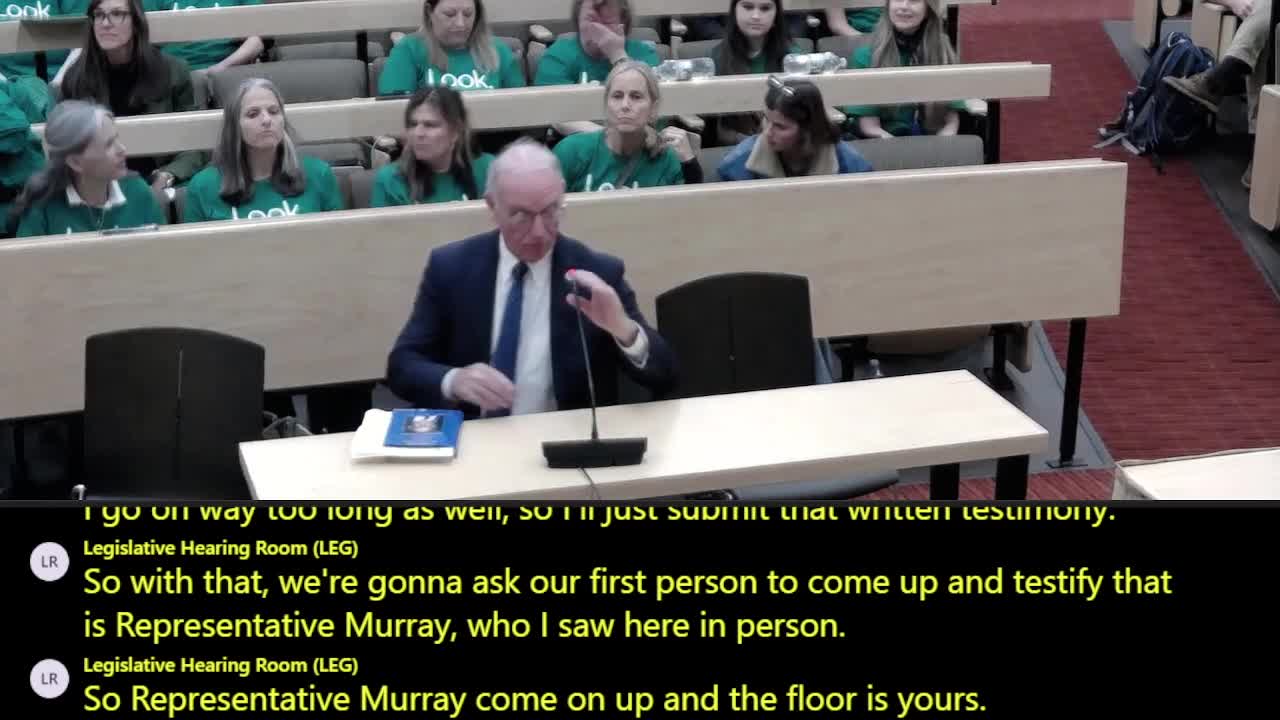Families, Clinicians Push Insurance Coverage for Genetic Craniofacial and Dental Disorders
Get AI-powered insights, summaries, and transcripts
Subscribe
Summary
Testimony in favor of House Bill 12‑57 and Senate Bill 7‑12 urged insurers to cover medically necessary treatment for congenital craniofacial and genetic dental conditions (e.g., amelogenesis imperfecta, dentinogenesis imperfecta, ectodermal dysplasia). Witnesses described functional impairments, lifelong treatment needs and CHIA cost estimates.
Representative David Murray and clinicians urged the committee to support House Bill 12‑57 and Senate Bill 7‑12, which would require insurers to cover medically necessary care and lifetime maintenance for certain congenital craniofacial and dental disorders that insurers often classify as dental or cosmetic and deny.
Representative Murray told the committee that treatments for rare craniofacial conditions restore basic functions such as eating and speaking and stressed the historic medical work in the field. “This bill would restore dignity and certainly provide a tremendous benefit to families,” Murray said in his oral testimony.
Clinicians from Tufts and the Forsyth Institute described conditions such as amelogenesis imperfecta, dentinogenesis imperfecta and ectodermal dysplasia as progressive and functionally disabling. Dr. Charlotte Georgiou (Tufts University School of Dental Medicine) said defective teeth “can cause systemic medical problems” affecting eating, nutrition and speech. Dr. Megan Pugash Gordon (Forsyth Institute) said families face “constant discomfort” and repeated restorative care when insurers label necessary interventions as cosmetic.
Parents and patients described multi‑year treatment paths and high out‑of‑pocket bills. John Mills spoke for his son William, a six‑year‑old with ectodermal dysplasia who has seven teeth and limited chewing ability; Mills said clinicians have already warned that insurers will likely deny coverage. Adult patients described multiple full‑mouth reconstructions and long maintenance cycles; one patient estimated the current phase of treatment at about $110,000 and said prior reconstructive care already exceeded $100,000.
Speakers cited a CHIA analysis that estimated the per‑member premium impact would be very small (witnesses noted an estimate of roughly $0.10–$0.28 per insured member per month) and compared lifetime uncovered costs for craniofacial patients (CHIA cited ranges of roughly $125,000 to $540,000 per patient in one analysis) with the lifetime costs previously analyzed for cleft lip and palate patients.
Testimony asked the committee to treat these congenital conditions consistently with existing statutory protections for other congenital anomalies and with prior coverage for cleft lip/palate dental care. The committee heard no formal opposition in the transcript and took no final vote during the hearing.
